
Rufy-DSR Capsule
Manufacturer
Madbris Life Sciences Pvt Ltd
Salt Composition
Domperidone (30mg) + Rabeprazole (20mg)
Key Information
Short Description
Rufy-DSR Capsule is a combination medicine used to treat gastroesophageal reflux disease (Acid reflux).
Dosage Form
Capsule SR
Introduction
Rufy-DSR Capsule is a combination medicine used to treat gastroesophageal reflux disease (Acid reflux). It works by relieving the symptoms of acidity such as heartburn, stomach pain, or irritation. It also neutralizes the acid and promotes easy passage of gas to reduce stomach discomfort.
Directions for Use
Take this medicine in the dose and duration as advised by your doctor. Swallow it as a whole. Do not chew, crush or break it. Rufy-DSR Capsule is to be taken empty stomach.
How it works
Rufy-DSR Capsule is a combination of two medicines: Domperidone and Rabeprazole. Domperidone is a prokinetic which works on the upper digestive tract to increase the movement of the stomach and intestines allowing the food to move more easily through the stomach. Rabeprazole is a proton pump inhibitor (PPI) which works by reducing the amount of acid in the stomach which helps in the relief of acid-related indigestion and heartburn.
Quick Tips
You have been prescribed Rufy-DSR Capsule for the treatment of acidity and heartburn. Take it one hour before the meal preferably in the morning. It is a well-tolerated medicine and provides relief for a long time. Inform your doctor if you get watery diarrhea, fever or stomach pain that does not go away. Inform your doctor if you do not feel better after taking it for 14 days as you may be suffering from some other problem that needs attention. Long-term use can cause weak bones and deficiency of minerals such as magnesium. Take adequate dietary intake of calcium and magnesium or their supplements as prescribed by your doctor.
Related Medicines
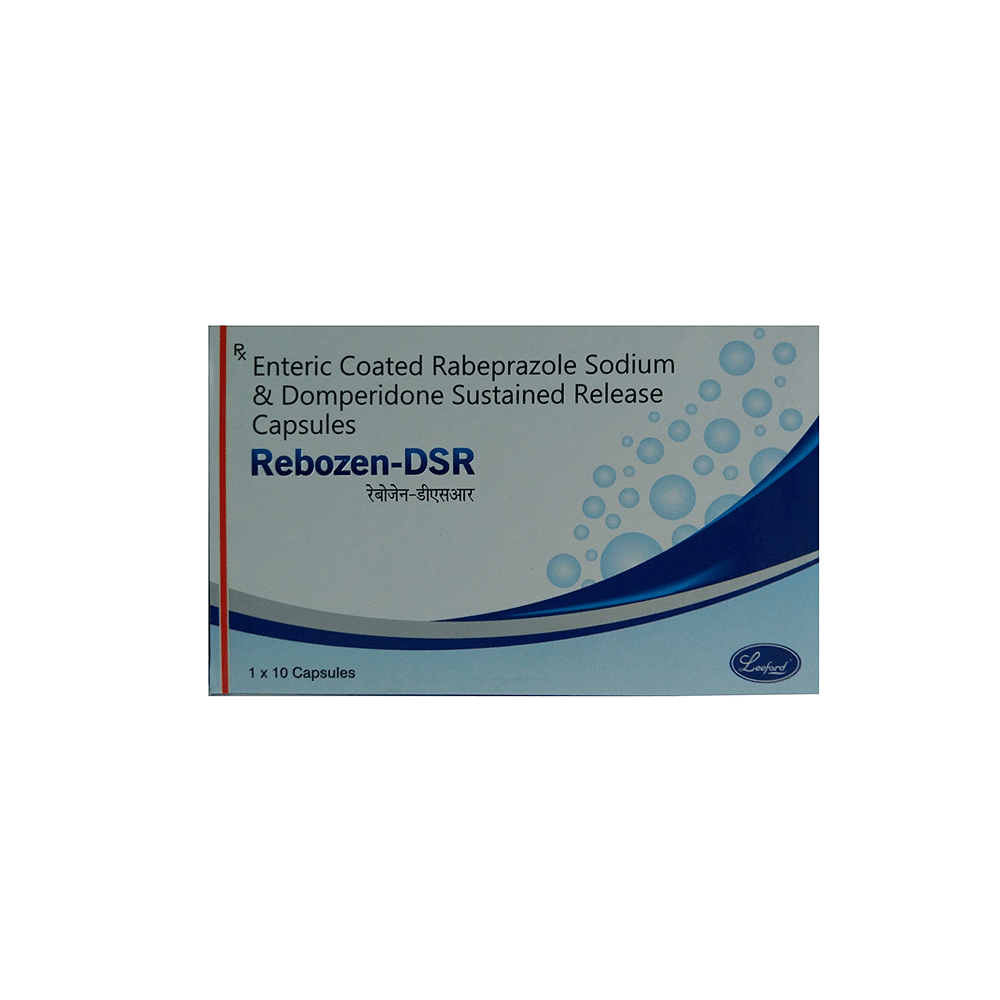
Rebozen-DSR Capsule
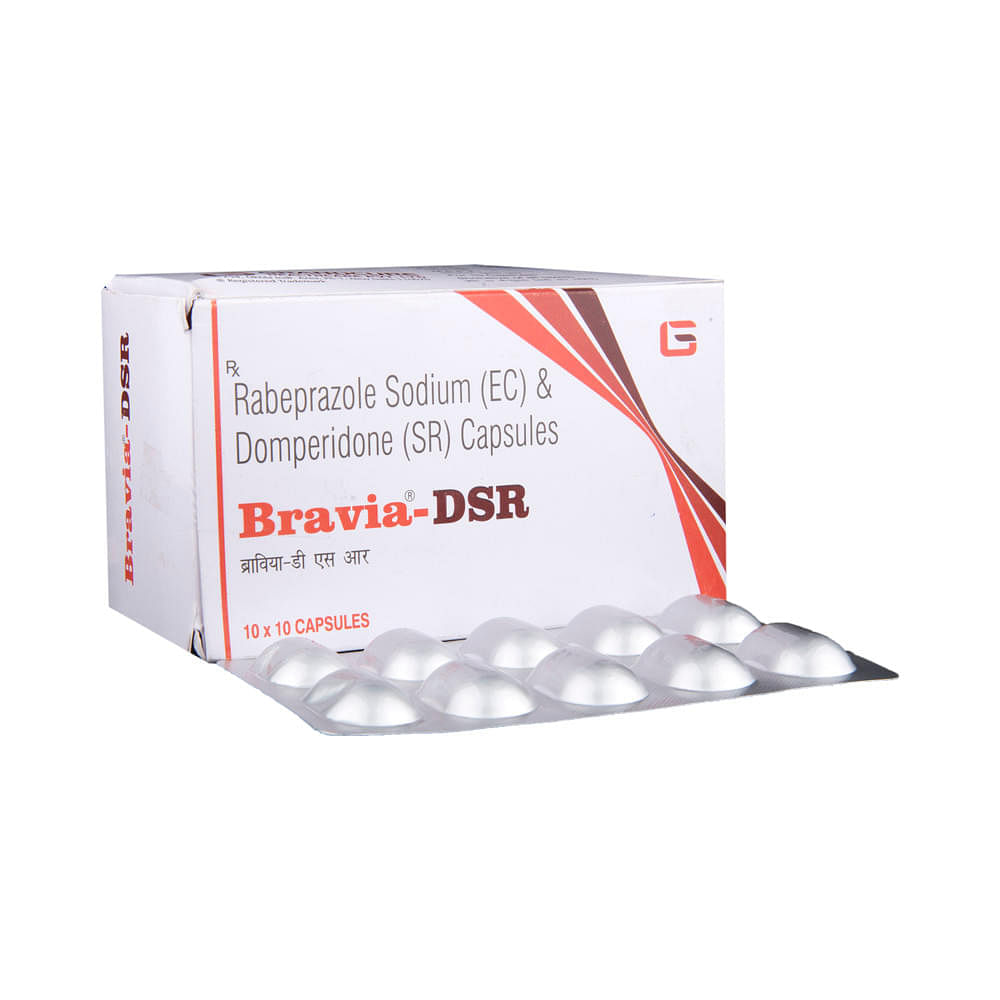
Bravia-DSR Capsule
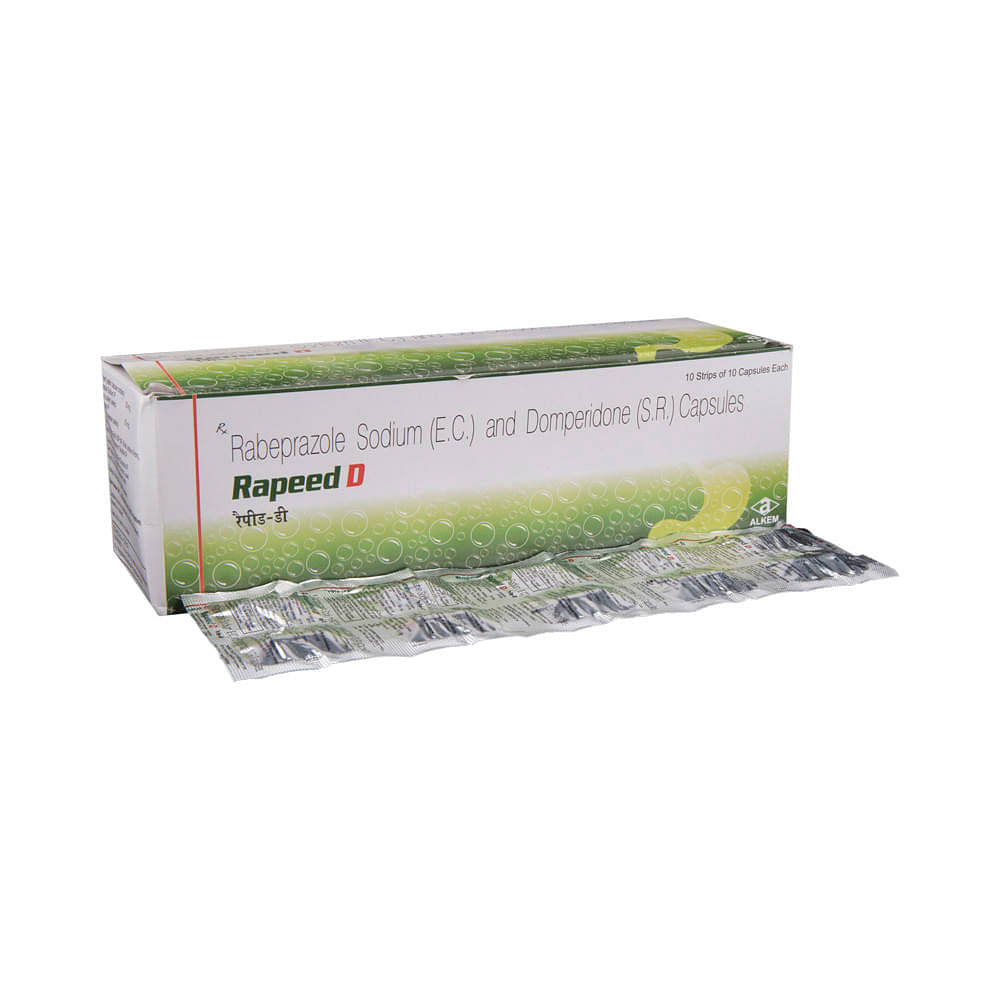
Rapeed D Capsule SR
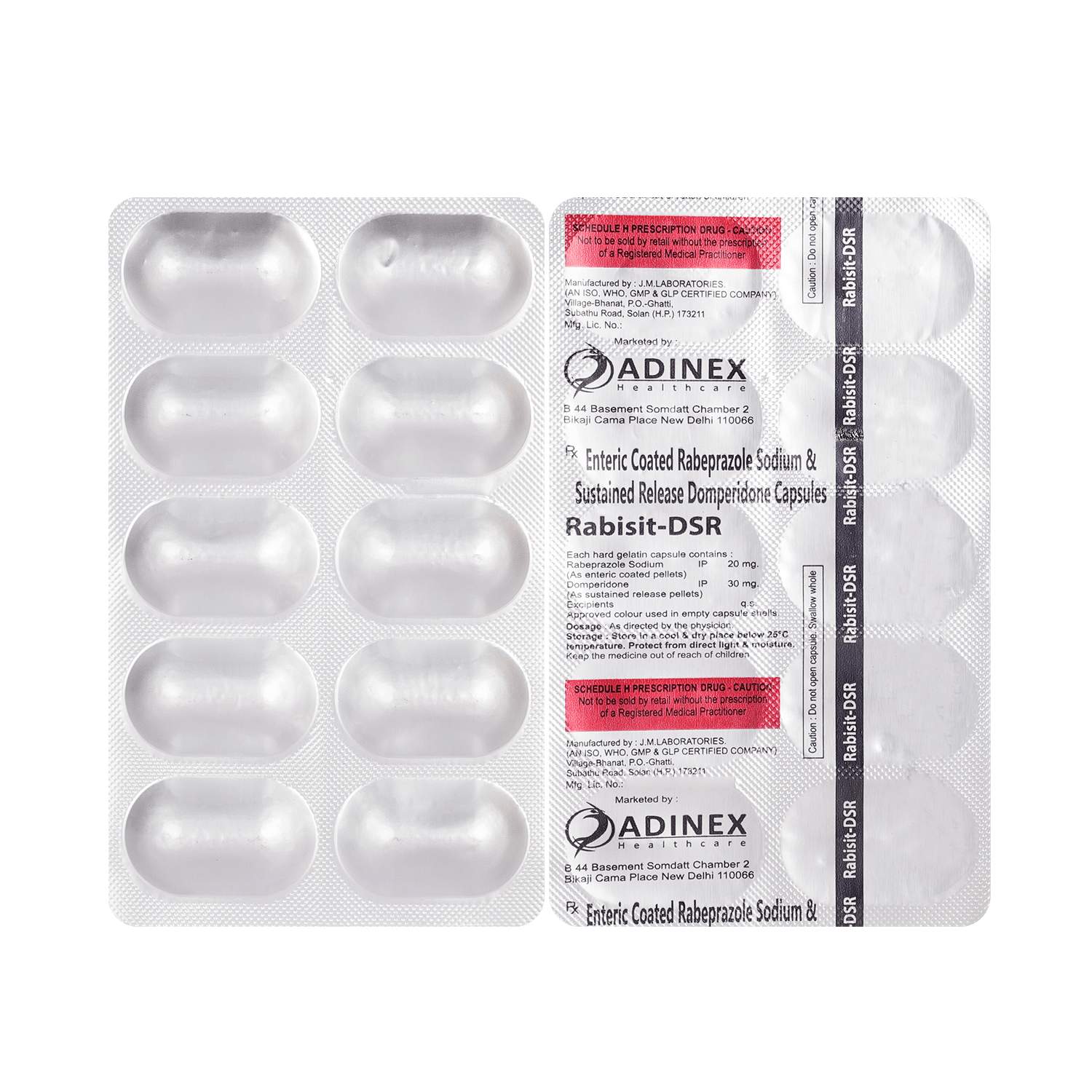
Rabisit-DSR Capsule
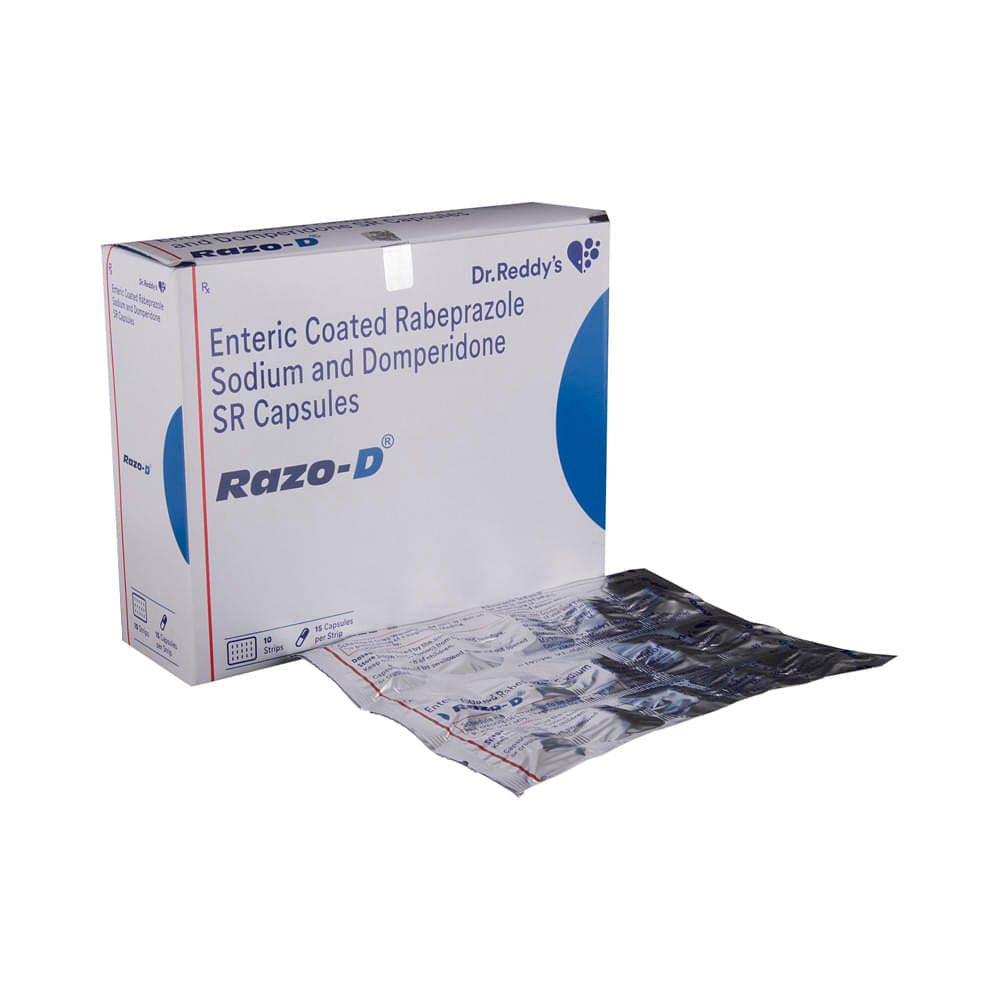
Razo-D Capsule
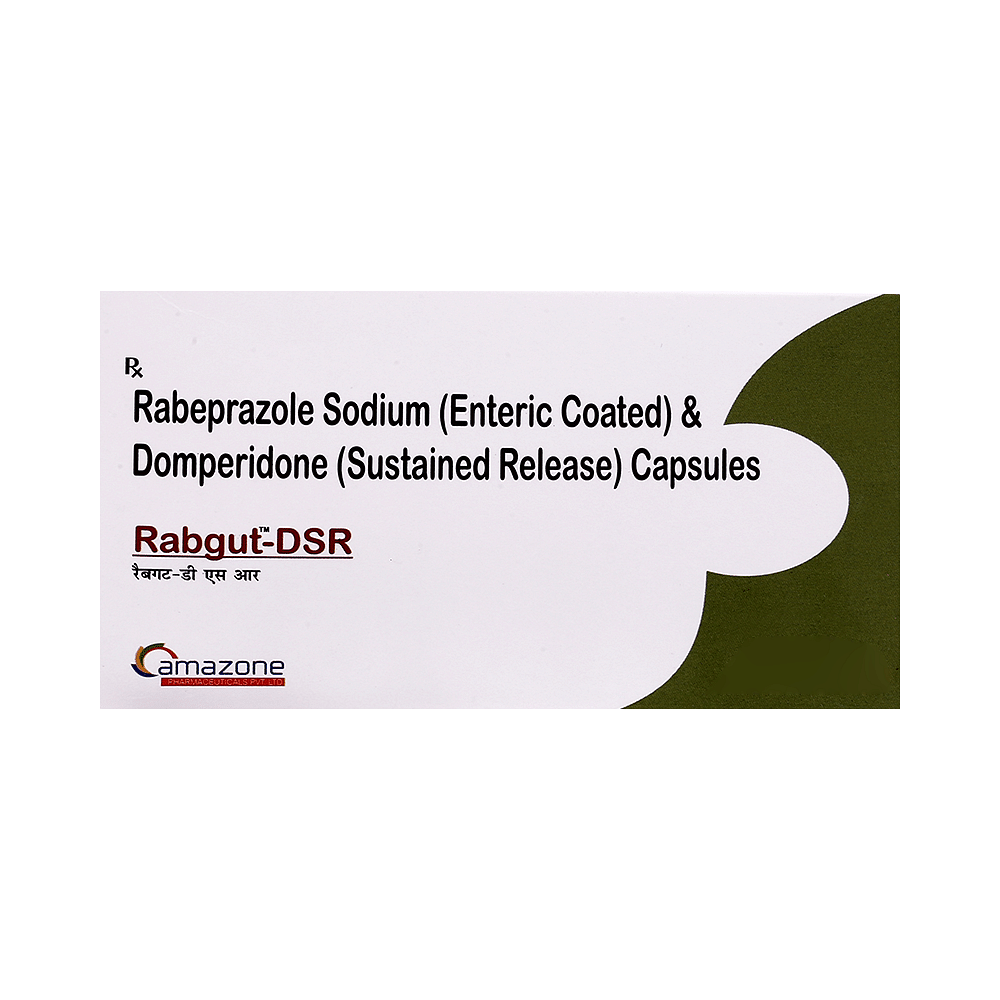
Rabgut-DSR Capsule

Rabiros D Tablet
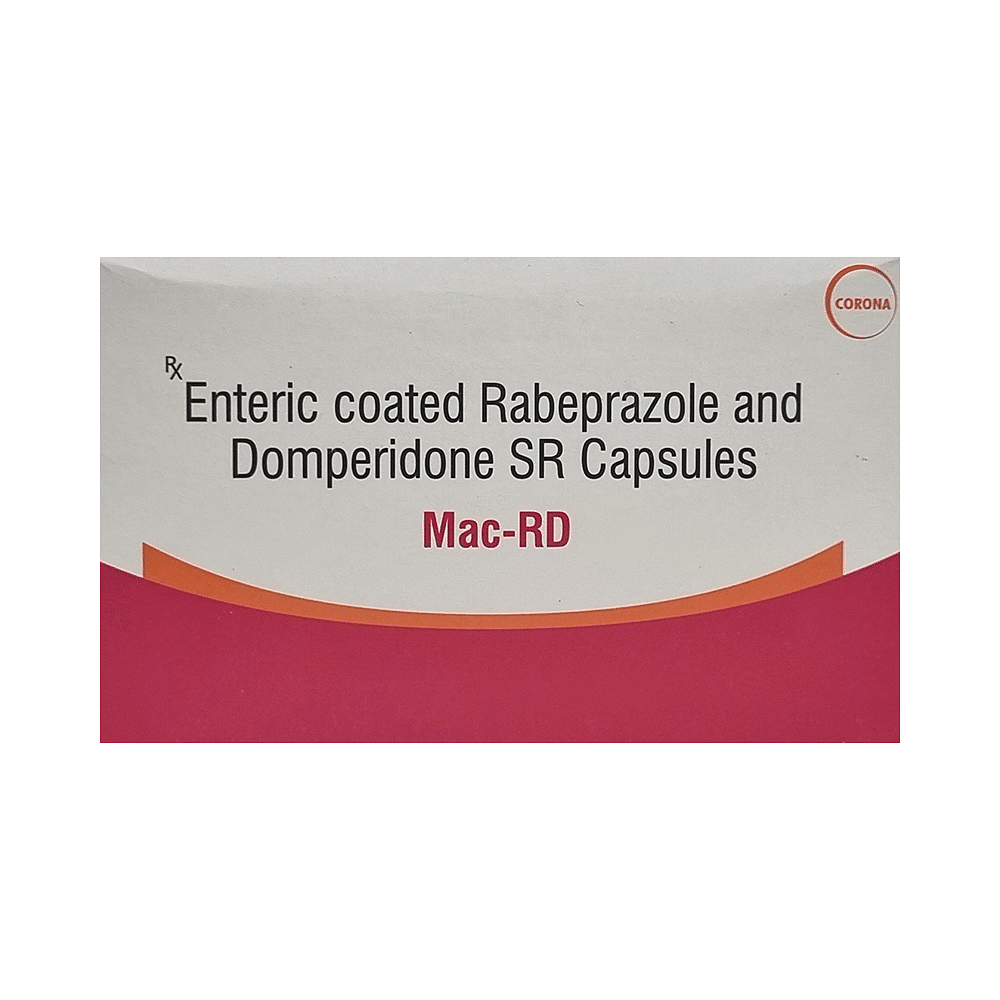
Mac-RD Capsule
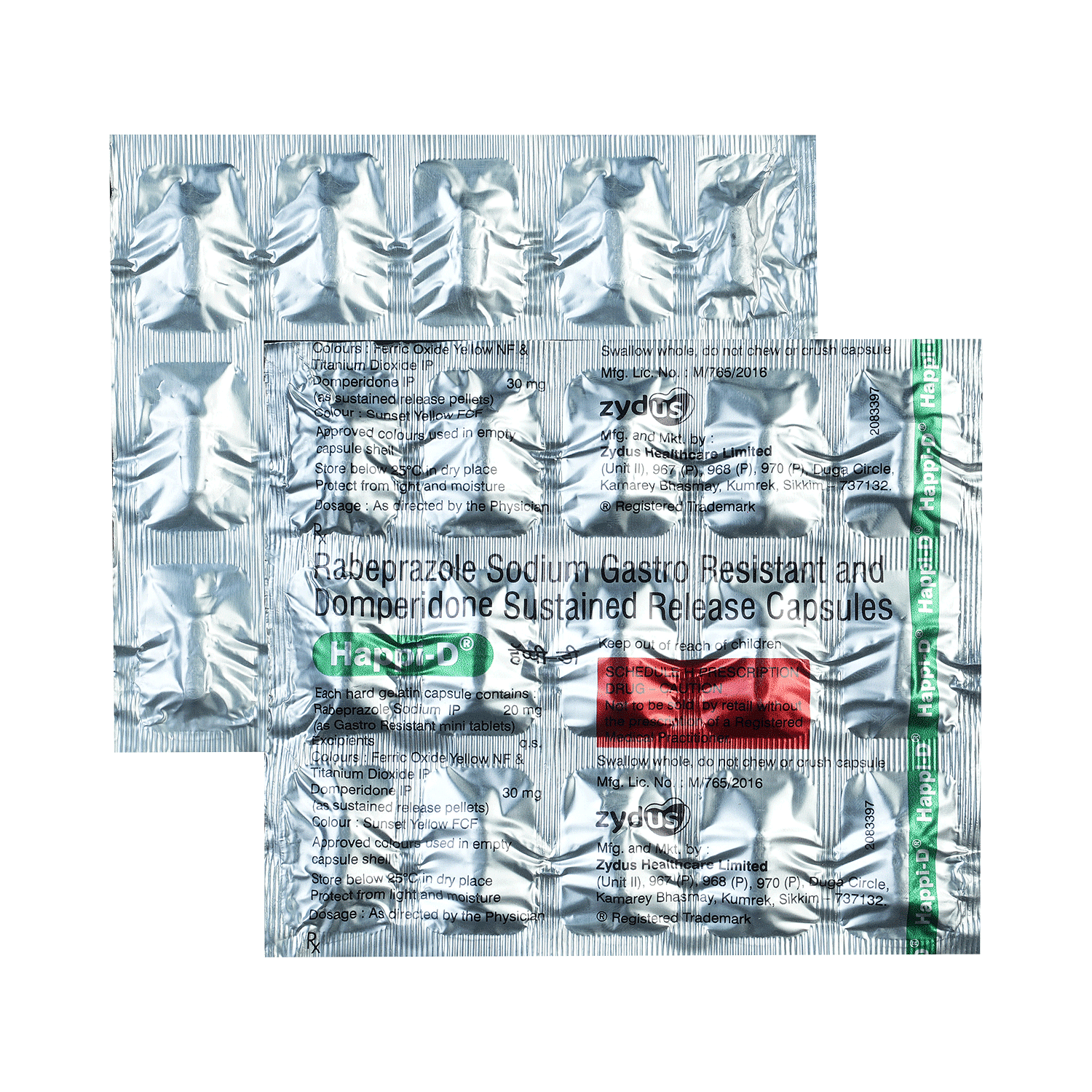
Happi-D Capsule SR

Rabonix-DSR Capsule
Frequently asked questions
What is Rufy-DSR Capsule?
Rufy-DSR Capsule is a combination medication that contains Domperidone and Rabeprazole. It is used to treat acidity, heartburn, gastroesophageal reflux disease (GERD), gastric, and duodenal ulcers. Domperidone helps control vomiting by increasing gut movement.
What are the contraindications of Rufy-DSR Capsule?
Rufy-DSR Capsule is not recommended for patients with a known hypersensitivity to Rabeprazole, Domperidone, or other inactive ingredients. Patients with underlying kidney or liver disease should use caution.
Can the use of Rufy-DSR Capsule cause dry mouth?
Yes, Rufy-DSR Capsule can cause dry mouth due to Domperidone. To manage this side effect, drink plenty of water, keep some near your bedside, reduce alcohol consumption, and avoid smoking. Use an alcohol-free mouthwash to prevent tooth decay.
Can the use of Rufy-DSR Capsule cause diarrhea?
Yes, Rufy-DSR Capsule may cause diarrhea. To manage this side effect, drink plenty of water or other fluids, avoid fatty or fried foods while taking the medication, and consult your doctor if diarrhea persists or you experience signs of dehydration.
What is the recommended storage condition for Rufy-DSR Capsule?
Store Rufy-DSR Capsule in its original container or pack, tightly closed. Dispose of unused medicine and ensure it is not consumed by pets, children, or other people.
Is it safe to use Rufy-DSR Capsule?
Rufy-DSR Capsule is generally safe for most patients. However, some may experience common side effects like diarrhea, stomach pain, flatulence, dry mouth, dizziness, and headache. Inform your doctor if you experience any persistent problems while taking this medication.
What is the best time to take Rufy-DSR Capsule?
It is recommended to take Rufy-DSR Capsule before the first meal of the day or on an empty stomach.
Can the use of Rufy-DSR Capsule cause abnormal heartbeat?
Yes, Rufy-DSR Capsule may increase the risk of developing irregular heartbeats (serious arrhythmias). This is a rare side effect, and the risk may be higher in patients over 60 years old.


